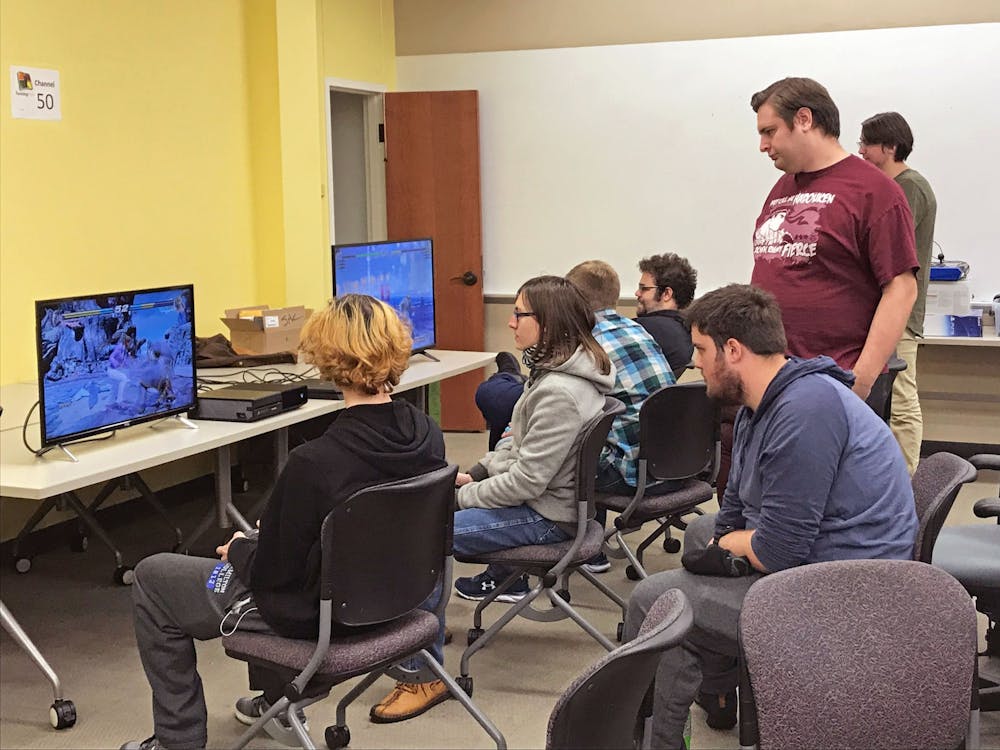Walking around Miami University’s campus on Saturday night, most buildings are closed. But Benton Hall remains well-lit and open.
Visitors that walk inside the building from 7 p.m. to 10 p.m. will be greeted with chatter coming from room 100 just to the left of the entrance.
In that room, there are numerous TV screens showing video games, with 10-20 Miami students gathered around them. With either a controller in hand or eyes glued to the screens, the students chatter but not loud enough to cause an uproar. Explosions and hard hitting punches on the screen are followed by talk of strategy.
The Miami University Fighters Guild (MUFG) gathers on Wednesday and Saturday nights, but every other Saturday is what the group’s president calls a “relaxation weekend.”
The students in MUFG use this free time not for partying Uptown, but to de-stress by playing video games together on campus.
Nothing is formally planned. There are no tournaments. The room lacks the large crowd that comes with the territory of a normal club meeting.
This is simply an opportunity for a group of people to enjoy themselves and play video games.
Matthew Danielson, a junior interactive media studies major and MUFG’s president, started the club because he appreciated fighting games, but he also wanted to foster a community he didn’t think outside party culture could provide.
“There are definitely people who go out and drink and party at Brick, and they will have a good evening,” Danielson said. “[I just don’t think it’s very] feasible to go and do those kind of things because there are entry fees and paying for alcohol ... There’s just a lot more extra factors I would rather not deal with.”
Danielson said he values the relationships he’s been able to build through MUFG’s Saturday sessions and is determined to keep the group together.
“I feel that those Saturday get-togethers also [make] the group feel more connected since then we get to see each other more frequently,” Danielson said. “If there are super long periods of time apart, group cohesion may not be as strong as it is [currently].”
Others who attend, such as sophomore Steven Jester and first-year Peter Hauve, said they feel similarly.
Enjoy what you're reading?
Signup for our newsletter
“[My brother] and I grew up playing fighting games together,” Jester said. “We would get a bunch of friends together and play fighting games for a few hours on a weekend … I’ve been interested in the FGC (fighting games community) for a while, and when I heard there was a club for that, I decided to check it out.”
When he arrived at Miami, he joined MUFG to recreate those casual relaxation sessions with a new community.
“The best part is, if there’s other people interested in a game that you like that isn’t being played often, you can introduce them and show them how it goes,” Jester said.
By contrast, Hauve is not a major fighting game fan. He considers himself more of a casual “League of Legends” player, but said he’s appreciated the community he’s found.
“I wasn't really drawn to the community; I more so just fell into it since I grew up with video games,” Hauve said. “But, if anything, it’s because I enjoy playing games with other people, especially my friends.”




